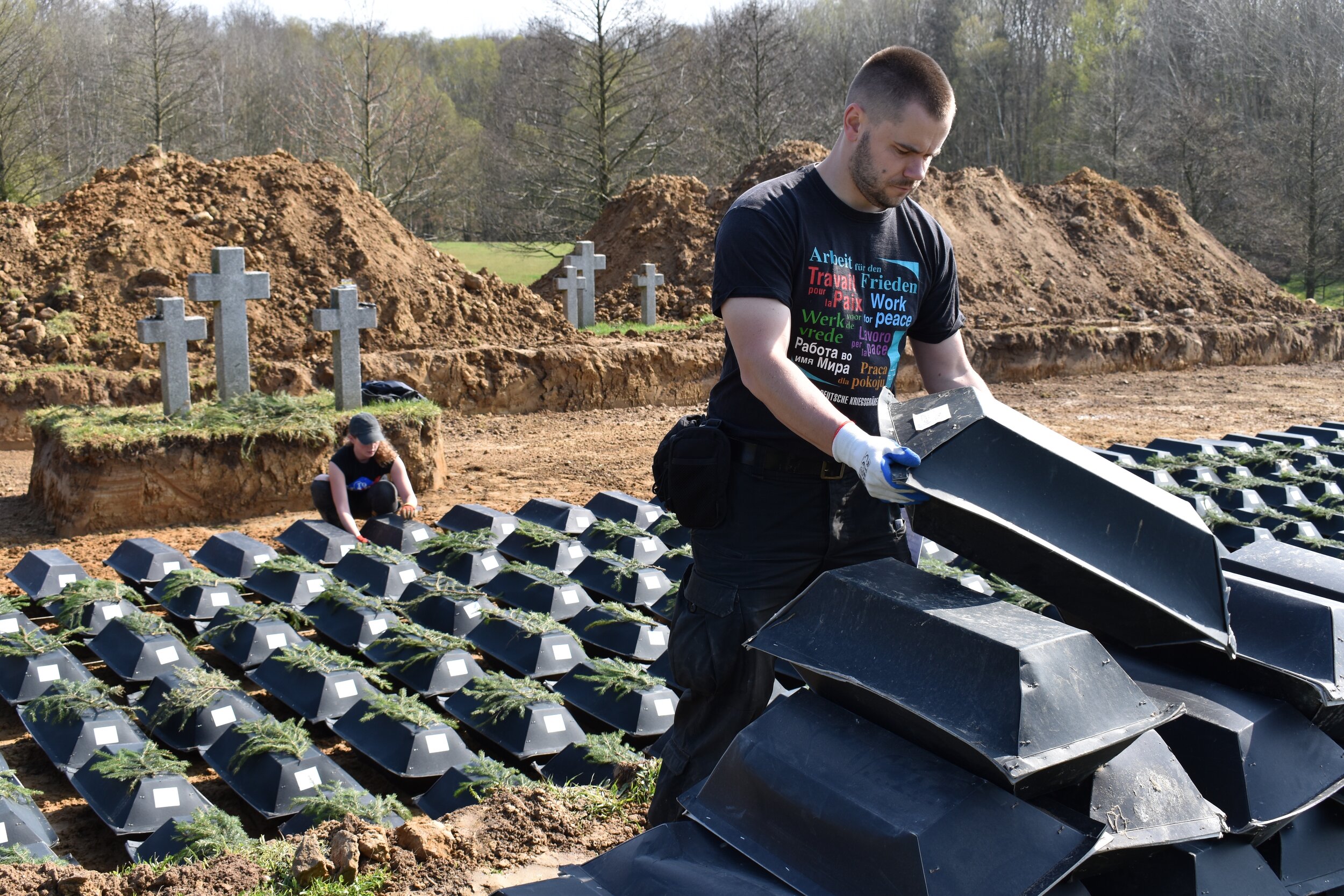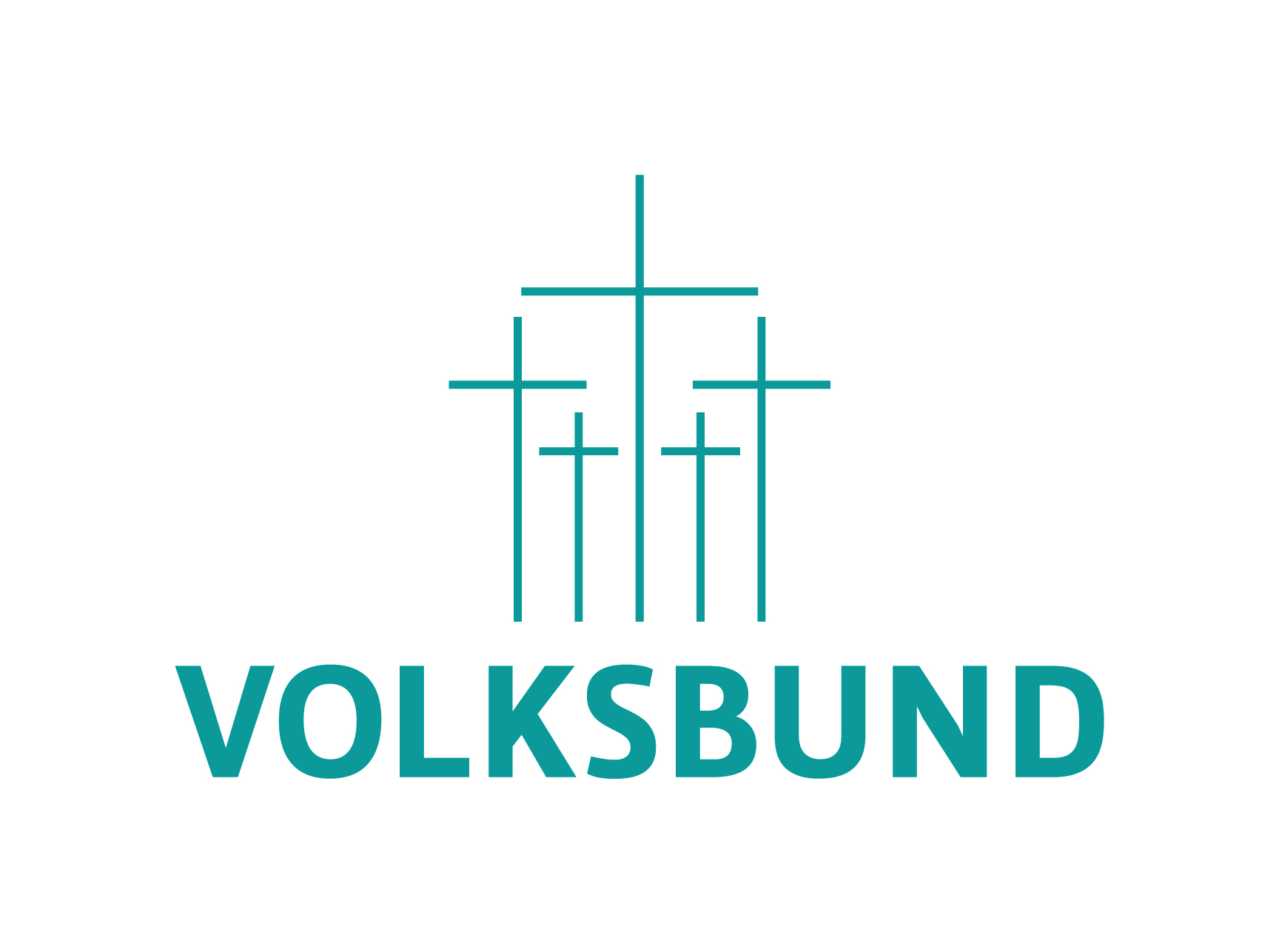German War Graves Commission (Volksbund Deutsche Kriegsgräberfürsorge)
History of the Volksbund
The charitable organisation Volksbund Deutsche Kriegsgräberfürsorge was founded on 16 December 1919, in an emergency situation. During this post-war period, the German government was still young and was both politically and economically unable to look after the graves of those killed in the First World War, or care for their relatives. This task was undertaken by the Volksbund, which was founded following a citizens’ initiative supported by the general population. Even now, two thirds of the Volksbund’s funds come from sponsors and donors.
By the 1930s, the Volksbund had established numerous war graves. However, mourning those killed in the war was becoming increasingly appropriated by nationalism. In 1933, the leadership of the Volksbund became subject to the National Socialist regime. The establishing of military cemeteries during the Second World War was taken over by the grave service of the Wehrmacht, the Germany army.
In the year following the end of the Second World War, the Volksbund swiftly established over 400 war graves in Germany. In 1954, the federal government instructed the Volksbund to locate, secure, and maintain the graves of German soldiers abroad. After the political changes in Eastern Europe from 1989 onwards the Volksbund could start work there, too.
DID YOU KNOW...?
Today, the Volksbund looks after a total of 832 war grave cemeteries in 46 countries, where around 2.7 million victims of war are buried.
German Culture of Remembrance
The German War Graves Commission has always followed the principle of burying war victims where they fell. At the same time, the Volksbund tries to align these war graves for the most part with the sepulchral culture of the relevant country and local landscape. In some Eastern European countries, the Volksbund decided to use the group cemetery model due to the high numbers of victims. In such cases, groups of symbolic crosses are arranged in large fields, with the names of those buried there written on large monuments and in books of names laid out there.
Collective Commemoration - Differentiated Remembrance
We are working to establish remembrance in dialogue form. We wish to discover and understand the different historical experiences and remembrance cultures of our European neighbours, find common ground, and respect each other’s differences. For these purposes, the Volksbund is working internationally with other participants in remembrance culture, collectively remembering victims of war. We see this international work as a contribution towards future peace and integration throughout Europe and the world.
A part of this is the critical reappraisal of German war crimes and human rights violations that took place during the Second World War and the Holocaust. The Volksbund looks after the graves of various groups of war dead: fallen soldiers, killed civilians, victims of the Holocaust, resistance fighters, but also war criminals. Dealing with these various groups of victims and perpetrators requires an exact contextualisation of the historical background, and a differentiated remembrance of an ambivalent history. This means that remembrance monuments are presented alongside various biographies and their historical contexts to share illustrative stories of war violence and persecution, as well as moral courage and humanity.
The Peace Work of the Volksbund: Current Projects
By maintaining cemeteries, the Volksbund ensures that victims of war continue to be remembered. It also performs an educational role, coming from the realisation that war graves are increasingly becoming places of both collective remembrance and of personal grief. More and more, they are developing into authentic historical places of learning for future generations. For this reason, their history needs to be presented and conveyed accordingly.
The Volksbund is supporting this change in meaning for war graves with political and historical work in its four youth exchange and education centres in Germany, the Netherlands, France, and Belgium. Every year, teenagers and young adults from all over the world meet up in dozens of international working projects throughout Europe. Information, permanent exhibitions, digital cemetery tours and a variety of other academic and extra-curricular educational projects turn cemeteries into places of learning and exchange, and bring the Volksbund’s motto to life: ‘Reconciliation above graves – work for peace’.
Volksbund Deutsche Kriegsgräberfürsorge e.V. is a humanitarian organisation charged by the government of the Federal Republic of Germany with recording, maintaining and caring for the graves of German war casualties abroad.
The Volksbund is a proud partner of Never Such Innocence. See more here…



